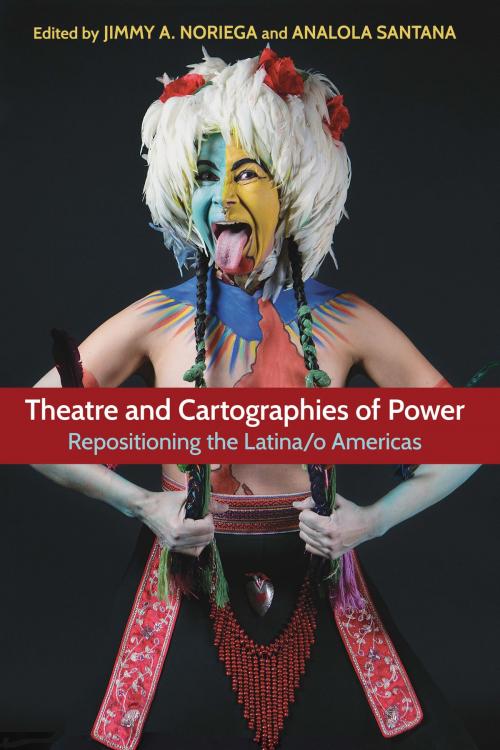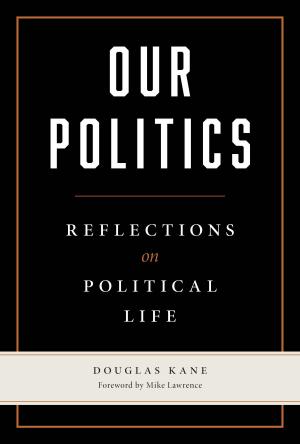Theatre and Cartographies of Power
Repositioning the Latina/o Americas
Nonfiction, Entertainment, Performing Arts, Theatre, History & Criticism| Author: | Violeta Luna, Jorge Dubatti, Ileana Diéguez, Patricio Vallejo Aristizábal, Gustavo Ott, Gad Guterman, Brian Eugenio Herrera, Diana Taylor, Migdalia Cruz, Diego La Hoz, Virginia Grise, Katherine Zien, Carlos Cortez Minchillo, Concepción León Mora, Debra A. Castillo, Elaine Romero, Beatriz Rizk, Roxana Avila Harper, Diego Aramburo, Ana Correa, April Sweeney, Astrid Hadad, Eberto B. García Abreu, Claudio Valdés Kuri, Jean Graham-Jones, Alma Martinez, Natalie Alvarez, Josefina Báez, Jorge Huerta, Guillermo Verdecchia | ISBN: | 9780809336326 |
| Publisher: | Southern Illinois University Press | Publication: | February 13, 2018 |
| Imprint: | Southern Illinois University Press | Language: | English |
| Author: | Violeta Luna, Jorge Dubatti, Ileana Diéguez, Patricio Vallejo Aristizábal, Gustavo Ott, Gad Guterman, Brian Eugenio Herrera, Diana Taylor, Migdalia Cruz, Diego La Hoz, Virginia Grise, Katherine Zien, Carlos Cortez Minchillo, Concepción León Mora, Debra A. Castillo, Elaine Romero, Beatriz Rizk, Roxana Avila Harper, Diego Aramburo, Ana Correa, April Sweeney, Astrid Hadad, Eberto B. García Abreu, Claudio Valdés Kuri, Jean Graham-Jones, Alma Martinez, Natalie Alvarez, Josefina Báez, Jorge Huerta, Guillermo Verdecchia |
| ISBN: | 9780809336326 |
| Publisher: | Southern Illinois University Press |
| Publication: | February 13, 2018 |
| Imprint: | Southern Illinois University Press |
| Language: | English |
From the colonial period to independence and into the twenty-first century, Latin American culture has been mapped as a subordinate “other” to Europe and the United States. This collection reconsiders geographical space and power and the ways in which theatrical and performance histories have been constructed throughout the Americas. Essays bridge political, racial, gender, class, and national divides that have traditionally restricted and distorted our understanding of Latin American theatre and performance. Contributors—scholars and artists from throughout the Americas, including well-known playwrights, directors, and performers—imagine how to reposition the Latina/o Americas in ways that offer agency to its multiple peoples, cultures, and histories. In addition, they explore the ways artists can create new maps and methods for their creative visions.
Building on hemispheric and transnational models, this book demonstrates the capacity of theatre studies to challenge the up-down/North-South approach that dominates scholarship in the United States and presents a strong case for a repositioning of the Latina/o Americas in theatrical histories and practices.
From the colonial period to independence and into the twenty-first century, Latin American culture has been mapped as a subordinate “other” to Europe and the United States. This collection reconsiders geographical space and power and the ways in which theatrical and performance histories have been constructed throughout the Americas. Essays bridge political, racial, gender, class, and national divides that have traditionally restricted and distorted our understanding of Latin American theatre and performance. Contributors—scholars and artists from throughout the Americas, including well-known playwrights, directors, and performers—imagine how to reposition the Latina/o Americas in ways that offer agency to its multiple peoples, cultures, and histories. In addition, they explore the ways artists can create new maps and methods for their creative visions.
Building on hemispheric and transnational models, this book demonstrates the capacity of theatre studies to challenge the up-down/North-South approach that dominates scholarship in the United States and presents a strong case for a repositioning of the Latina/o Americas in theatrical histories and practices.















